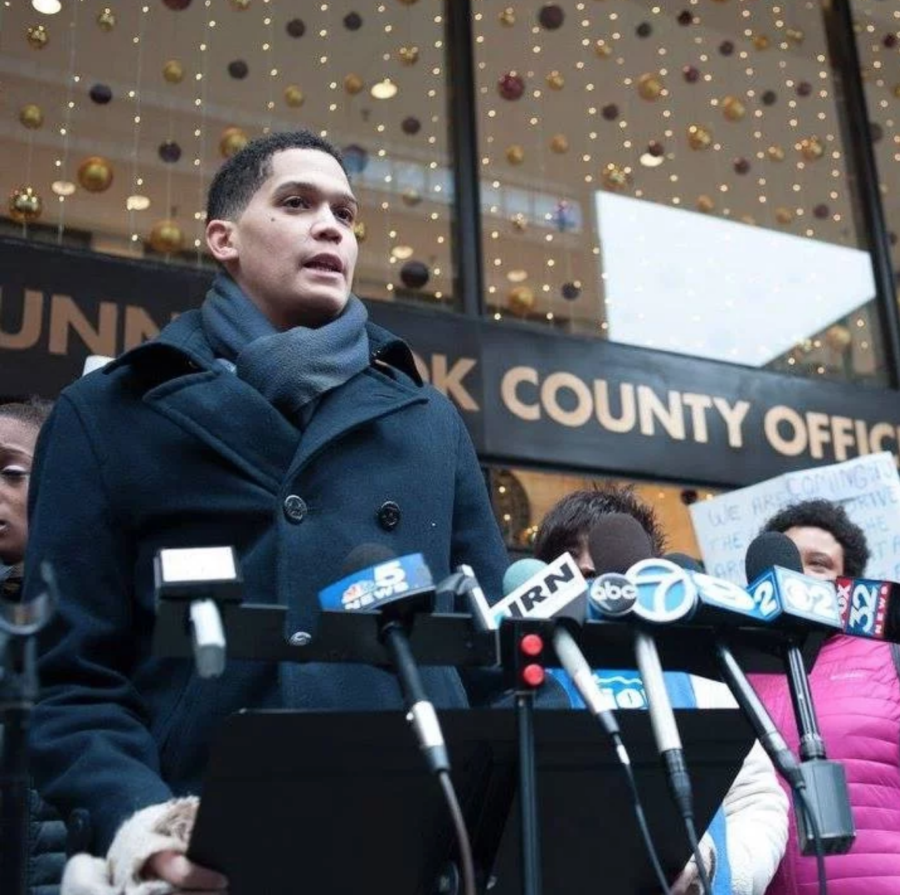Senator Robert Peters has represented Hyde Park in the Illinois State Senate since January of 2019. On October 2, the Maroon sat down with Senator Peters for an interview where he reflected on his past efforts and gave insight on key issues as they relate to the COVID-19 crisis and the presidential election.
Senator Peters’s legislative record is extensive. Since 2019, he has passed 13 bills addressing criminal justice, secure housing, and public health throughout the state. He is responsible for the end of “pay to stay” in Illinois, which allowed jails to charge inmates for their detention, as well as removing the parental consent requirement for young people to get access to PrEP, an HIV prevention drug. He was also instrumental in the implementation of civic education for people recently released from prison.
Criminal justice reform has always been central to Peters’s platform. A supporter of the Black Lives Matter movement, he sees “law and order” policies as toxic and discriminatory. “We should indict the four decades–long Tough-on-Crime policies that clearly do not make anyone feel safe. We need to indict a system that seems not to stop murders or solve them,” he said.
The existence of the University of Chicago’s private police force, the UCPD, makes this issue more complex from the perspective of Hyde Park. Student organizations and community leaders have called for its disbandment over reports of racial profiling, over-policing, and a lack of accountability. Peters shares many of these beliefs.
“The University does not need the police force they have. There’s no accountability there. We need to start scaling back the UCPD so it’s not doing random stops on anyone who is Black in the neighborhood,” he said. “You can’t call it public safety without the public having input.”
Peters feels that much of the contention between the University and its surrounding community is the result of social issues like the UCPD and housing displacement caused by gentrification. However, Peters does not want the UCPD to disappear; rather, he calls for a UCPD that acts more benevolent than antagonistic.
“Let’s get back to getting cats out of trees and helping folks cross the street,” he said. “They don’t need to have the police force that they have.”
This nuanced perspective extends to other aspects of the University’s relationship with Hyde Park.
“I respect the University as one of the most important economic engines on the South Side. If you need to go to a hospital right now, you go to the University of Chicago Medical Center (UCMC). They have a lot of Medicaid patients. If you are working on the South Side, you might be working at the UCMC,” he said, adding that many small businesses also operate through the University.
For Peters, reconciling the two aspects of this relationship comes down to community organization, not just from within the University, but from without. “The organization we need to see is not for folks on campus; the organizing that needs to happen needs to be community-centered,” he said. “We need to reimagine what safety, justice, dignity, and community look like.”
Of the issues facing Hyde Parkers, secure housing has become even more urgent in the wake of the COVID-19 crisis, which has left millions of Americans unemployed and unable to pay rent. Recent measures like the Woodlawn Housing Ordinance have aimed at combating displacement on the South Side.
“According to the Illinois Housing Authority, there were more than 370,000 people on the verge of eviction in January. We don’t know how many people have been pushed out of their houses. We’re in a horrible housing situation. It is absolutely a crisis,” he said.
Peters is a proponent of grant programs for those unable to pay rents and mortgages, as well as higher rent regulation to offset the effects of gentrification.
“If a grocery store comes up near you, you shouldn’t have to worry about a $400 increase on your rent. Let’s keep people there and let them enjoy the grocery stores that they have deserved for so many years,” he said.
Housing is not the only issue exacerbated by COVID-19. Peters called it a “triple crisis,” saying, “there’s the crisis when it comes to health, the crisis when it comes to economics, and the crisis when it comes to racism, particularly in law enforcement. These issues all have existed for quite some time, but the urgency in which these crises have exhibited pain onto peoples’ lives [due to COVID-19] has made me feel even more urgency to act.”
Peters blames the federal government for failing Americans: “There’s so much we need at a state level, but we have an incompetent president and an equally vicious Senate majority leader. It’s going to cause an even worse crisis for people whether it’s Illinois or Texas.”
Senator Peters is hopeful that his legacy in Hyde Park will be positive. “If I’m lucky enough to keep this seat in the future that’s great. But, I want to say that I was able to pass a series of systemic bills that improve peoples’ lives,” he said.
“The people have to have the power to be in control of their community, their safety, and their dignity. If I can play a small role in that, it would be the happiest thing in the world for me.”









